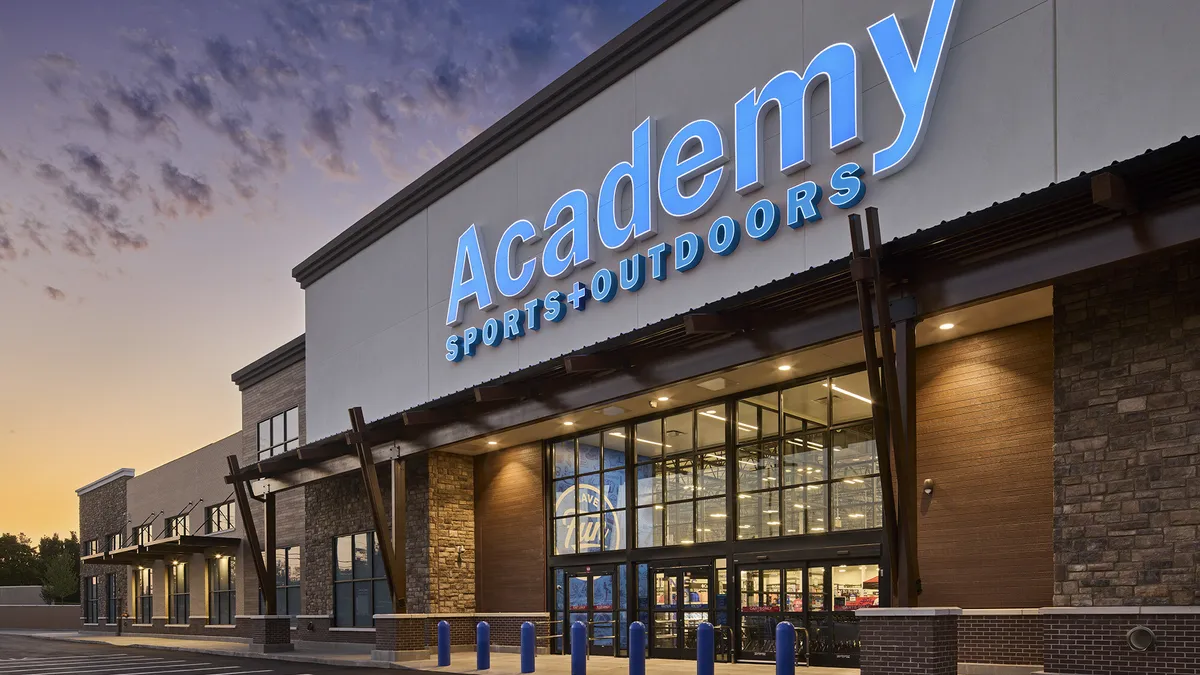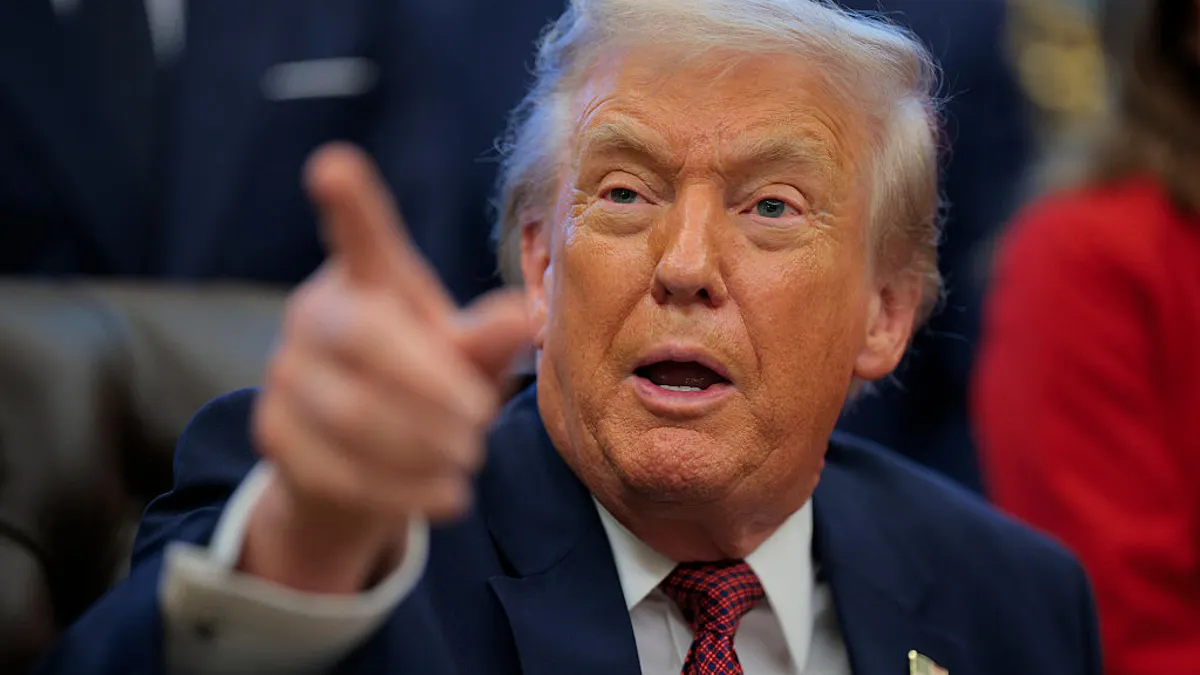One of the problems with corporate responsibility is you need to convince companies it's going to work before they embrace it, Mac McGary, president of the Sweetbridge Blockchain Alliance, believes. Companies generally want to do the right thing and facilitate human prosperity, but they're not always convinced corporate responsibility is financially feasible.
McGary thinks it is, and he thinks the supply chain is the starting point.
"The biggest thing is we’re taking a different perspective of the supply chain," McGary said of Sweetbridge's goal. "Our mission is to help big companies coordinate the flow of information along a supply chain. Now what if we look at the genesis of the supply chain and see the world through their lives? This is where the supply chain begins, in the dirt or the sea. How do you harvest what the earth makes and add value to it?"
For McGary, that means using blockchain to identify "bad actors" within the supply chain, alert management and provide economic incentives for all links of the supply chain to do the right thing.
Abuses in the supply chain are complex, not black and white
"Farmers in the poorer countries are typically paying 18-37% interest to get a loan to run their farms and feed their families, and they get paid less for it," McGary said. "So the economics of the farming community is just crazy (in North America the loans are at 8% interest). So if you were to think about the supply chain, what if we solve for liquidity at the farmer’s level, what if we could have an impact?"
How do you harvest what the earth makes and add value to it?

Mac McGary
President of the Sweetbridge Blockchain Alliance
But the problem goes beyond fair compensation for farmers along the supply chain. "Fair trade" certifications and routine checkups at various locations in underdeveloped countries aren't enough for a company to verify foul play — like human trafficking — is not present in its supply chain.
"Coffee producing companies claim 90% of their coffee comes from fair trade locations, but you only survey every five to 10 years, and the local government knows you’re coming, so they’re complicit in hiding the children and staging the process so that they’re compliant because they don’t want to lose business," McGary said.
As a result, farmers in Africa and southeast Asia struggle to acquire the loans they need to finance operations, often resorting to inhumane or unethical labor practices just to stay afloat. Local governments are complicit with unethical practices on these farms (like child labor), because they want to keep the big company's contract work.
"The politicians will say we love our people, but we are poor, what might be slavery to you isn't to us, so explain to us why you’re discriminating against our economic system," McGary said. "We’re not interested in reducing what money we have to zero."
Coffee producing companies claim 90% of their coffee comes from fair trade locations, but you only survey every five to 10 years, and the local government knows you’re coming, so they’re complicit in hiding the children and staging the process so that they’re compliant.

Mac McGary
President of the Sweetbridge Blockchain Alliance
That's where blockchain comes in. Sweetbridge believes blockchain can increase transparency and enforce contracts within the supply chain, and thus help a corporation be more accountable to what's going on behind the scenes.
In other words, blockchain within the supply chain can help a company be more socially responsible.
"We don’t want brands to disengage from whole regions because of a few bad actors," McGary said. "So how do we reward bad actors for good behavior? If we can validate with electronic records [through blockchain], then they would then be eligible to get supply chain financing at a lower cost. We found you could incentivize people to do the right thing at the local level by giving them access to capital."
Incentives and practical solutions are key for rooting out unethical behavior
Economic incentives and practical solutions are where companies can get on board with social responsibility: if nonprofits such as Sweetbridge can provide a way for companies to root out corruption or unethical practices, then not only will those companies have access to more capital, increasing their operational capacity, but local communities within the supply chain will flourish.
"Companies are totally against slavery, so they say, if you can create a blockchain platform to verify there’s nothing going on in our supply chain, we will be 100% compliant," McGary said. "The challenge here is, the best solution for slavery is to eliminate poverty. If the economy is booming, people won’t be enslaved. It has to do with an alignment of incentives."
We found you could incentivize people to do the right thing at the local level by giving them access to capital.

Mac McGary
President of the Sweetbridge Blockchain Alliance
But Sweetbridge isn't the only company that believes social responsibility starts in the supply chain. IBM recently launched a Science for Social Good Program, and through the program, IBM researcher Mary Helander helped educate New York City charity St. John's Bread & Life on its supply chain to improve its operations.
"We were helping them understand their operations in terms of supply chain operations management," Helander told Supply Chain Dive. "The real surprise was that they didn't need help managing the operations, and what we found is that they operated fairly efficiently, we didn't really have to teach them how to manage better."
Because the charity managed itself so well, Helander focused on helping the managers understand the terms and metrics so that they could present themselves as a well-run nonprofit to donors.
"What I did was teach them their OM textbooks," Helander said. "I think it gave them some appreciation and also some ammunition to go out and apply for grants and their major donor base, and talk about those things in a scientific way. Some of their major donors may be big investors or Wall Street, and they will understand terms like 'turnover' and 'efficiency.'"
But the reason Helander focused on the supply chain operations is it's an ideal starting point for a food pantry that is regularly taking in and giving away food and supplies.
What I did was teach them their OM textbooks. I think it gave them some appreciation and also some ammunition to go out and apply for grants and their major donor base, and talk about those things in a scientific way.

Mary Helander
IBM Researcher
"A lot of times in a research problem, the underlying issue is hunger and poverty, but it’s way too general with technology or science to try to solve that," Helander said. "I think people don’t realize you can’t change the world in a year. It took me working with a company and a nonprofit that’s been doing this for over 20 years to know the business really well, so for us to sweep in and change everything is not really practical."
Corporate responsibility is not just about 'doing the right thing'
Large corporations can do a lot of good by taking stock of their supply chains and innovating solutions not just to increase efficiency, but to prevent abuses and cultivate human flourishing and the local communities they partner with.
Ultimately that's in the best interest of corporations, because if anything, it staves off scandals and keeps brand image and reputation unstained. But McGary wants corporations to think beyond that, to think about what he calls the "triple bottom line."
"The triple bottom line is this idea that you also measure social impact and environmental impact (as apart from just financial impact)," he said. "We think the triple bottom line is going to drive corporate decisions more and more."





















